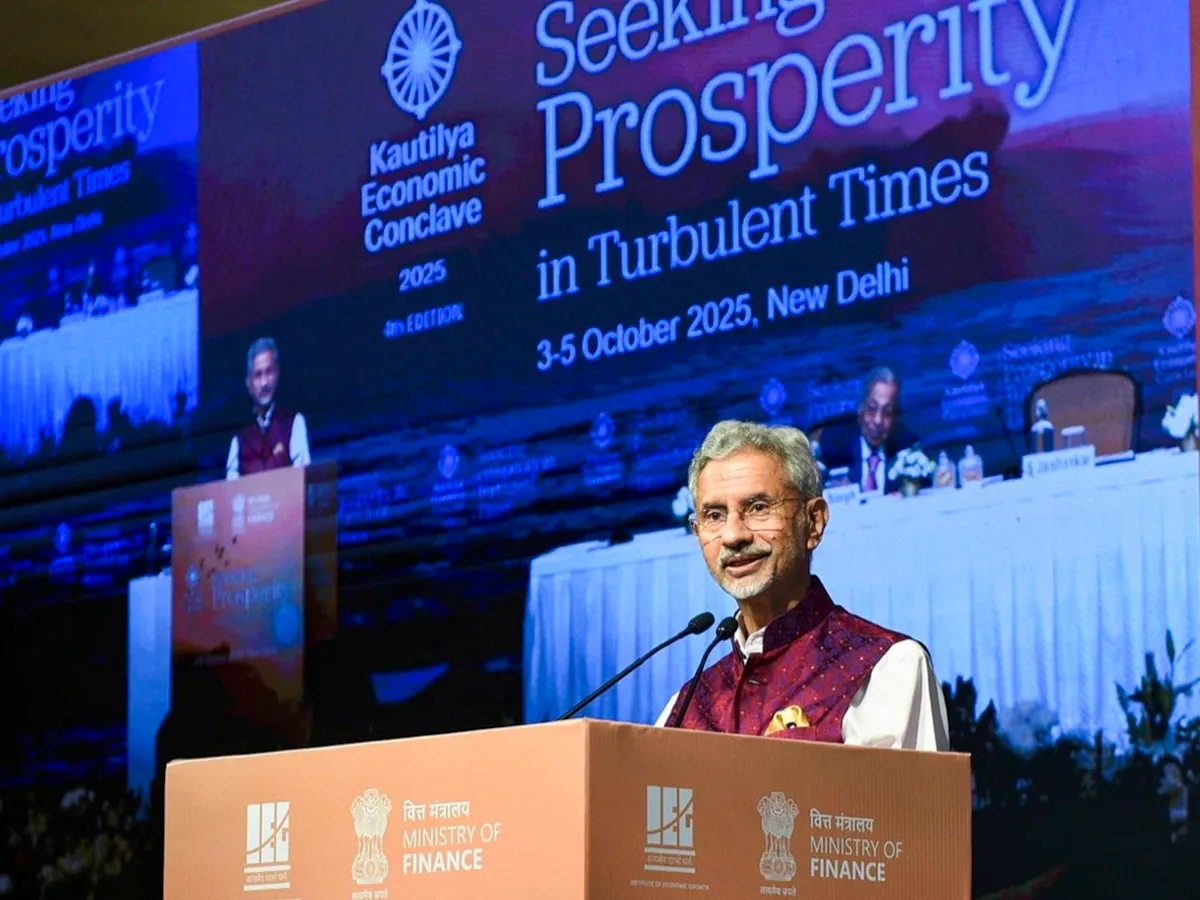Business News
India-US trade talks: What 'red lines' Jaishankar wants Trump administration to respect
.png)
4 min read | Updated on October 06, 2025, 13:59 IST
SUMMARY
External Affairs Minister S. Jaishankar stressed that any trade agreement with the United States must respect India’s “red lines,” even as efforts to revive a long-pending deal continue.

External Affairs Minister S. Jaishankar addresses the gathering at 'Kautilya Economic Conclave 2025' on 'Seeking Prosperity in Turbulent Times'. (@DrSJaishankar/X)
Any trade agreement between India and the United States must respect New Delhi’s “red lines,” External Affairs Minister S Jaishankar said on Sunday, even as efforts are underway to reach an understanding amid recent strains in bilateral ties following Washington’s tariff hikes.
Speaking at an interactive session at the Kautilya Economic Enclave on the theme ‘Shaping Foreign Policy in Turbulent Times’, Jaishankar acknowledged “issues” between the two countries, particularly the inability to finalise a long-pending trade deal.
“There are things you can negotiate and there are things you can’t,” he said, stressing that India’s core interests must not be compromised.
“We have today issues with the United States. A big part of it is the fact that we have not arrived at a landing ground for our trade discussions, and the inability so far to reach there has led to a certain tariff being levied on India,” Jaishankar said.
He was referring to US President Donald Trump’s decision in August to double tariffs on Indian goods to as high as 50%, including an additional 25% duty on imports linked to India’s purchase of Russian crude oil. India had described the move as “unfair, unjustified and unreasonable.”
Jaishankar said that while the US is the world’s largest market and India seeks a trade understanding with it, the agreement must be “on terms that respect our red lines.”
“Whatever happens at the end of the day, there has got to be a trade understanding with the US... but it has to be an understanding where our bottom lines, our red lines are respected,” he said. “We are pretty clear about that. We have to find that landing ground, and that’s been the conversation which has been going on since March.”
What are ‘red lines’ India wants US to respect?
Officials from both sides have since resumed talks to revive a draft trade pact aimed at doubling bilateral trade to USD 500 billion by 2030 from USD 191 billion currently.
Last month, the Commerce and Industry said that the Indian delegation led by Union Minister Piyush Goyal had constructive meetings with the US government on various aspects of the trade deal.
Both sides exchanged views on possible contours of the deal, and it was decided to continue the engagements with a view to achieving early conclusion of a mutually beneficial Trade Agreement, the ministry said in a statement.
However, the proposed agreement remains stalled over sharp differences in areas like agriculture, dairy, and tariffs.
Washington has been pushing for greater market access for agricultural products such as apples, nuts, and genetically modified crops, as well as industrial goods, electric vehicles, wines, and petrochemical products.
India, on the other hand, has sought tariff concessions for labour-intensive exports such as textiles, gems and jewellery, leather goods, and seafood, while resisting cuts on politically sensitive farm and dairy products that support millions of smallholder farmers.
The US remained India’s largest trading partner for the fourth consecutive year in 2024–25, with bilateral trade valued at USD 131.84 billion. The US accounted for about 18% of India’s total exports and over 10% of total merchandise trade.
Jaishankar emphasised that while trade tensions have caused some friction, it has not been impacting every dimension of the engagement.
“There are problems, there are issues, nobody is in denial of it. Those issues need to be negotiated and discussed and resolved, which is exactly what we are trying to do,” he said.
“A large part of the relationship is actually continuing as business as usual or, in some cases, doing even more than before.”
By signing up you agree to Upstox’s Terms & Conditions
About The Author
Next Story

